The Testimony of Commander Thain
Unfortunately the admirals had gotten to Commander Thain before he testified, but his testimony was very useful in describing the intense peer pressure that was brought to bear upon him beforehand. I believe Cmdr. Thain is supportive of RCN but was instructed by certain admirals in the Naval Officer's Association not to push for it. Admiral "I have bigger fish to fry" McFadden was subsequently put on the defensive when Cmdr. Thain's testimony came to light.
THE STANDING SENATE COMMITTEE ON NATIONAL SECURITY AND DEFENCE
EVIDENCE
OTTAWA, Monday, November 22, 2010
The Standing Senate Committee on National Security and Defence met this day at 4 p.m. to examine and report on the national security and defence policies of Canada (topics: the role of Canada in NATO; and national threat assessments); and to consider a motion to change the official structural name of the Canadian navy.
Senator Pamela Wallin (Chair) in the chair.
[English]
The Chair: I call to order this meeting of the Standing Senate Committee on National Security and Defence on Canadian national security and defence policies, including Canada's NATO role, the national threat assessment, and a look at changing the official structural name of the Canadian navy. We will not be dealing with Item 4 on today’s agenda; that is Senator Rompkey's motion in the Senate.
The committee has been studying a motion by Senator Bill Rompkey that asks the Minister of Defence to change the official structural name of Maritime Command to “Canadian Navy.” In conducting this study, some committee members have also suggested that Maritime Command revert to an earlier name, the Royal Canadian Navy.
We have not heard much testimony on that, but today we are pleased to hear from retired navy Commander Chris Thain (Retired), president of the Winnipeg branch of the Naval Officers’ Association of Canada.
Commander (Ret'd) Chris Thain, President of the Naval Officers’ Association of Canada branch in Winnipeg, as an individual: Good evening, madam chair, honourable committee members. It is a privilege to appear before you today. Security and defence being a fundamental responsibility of government, I consider the work of this committee to be of the utmost importance, so I thank you for the time allowed for me to speak to you regarding the motion put forward by the Honourable Senator Rompkey to change the structural name of Maritime Command to “Canadian Navy.”
I am a retired naval reservist who joined the Royal Canadian Naval Reserve in 1957, as a member of the university naval training divisions. I received my royal commission in 1962 and held the rank of lieutenant navy when unification arrived in 1968. I retired in 1985 with the rank of commander, having served as Commanding Officer of HMCS Chippawa in Winnipeg from 1978 to 1981. I speak to you today as president of the Winnipeg branch of the Navy Officers' Association of Canada. My purpose is to encourage support for Senator Rompkey's motion.
Many would see the change to “Canadian Navy” as simply another step in what has been a long process of moving away from the effects of attempted integration and unification. In part it may be that, but it is not just a step back to reclaim something of the past. It is a positive move that would replace a term used only because it is required in official conversation and documents with one that is used in everyday conversation, in all sectors of the military and by the general public both here and abroad.
If it were only a step back to the past, then many of the members of the Winnipeg branch would call for a return to the “Royal Canadian Navy,” but it is not a step back. It is a step forward, replacing outdated terminology with what is in common use. Not only is “Maritime Command” outdated in service use, it is a term with little meaning to the Canadian public that unfortunately can be decidedly apathetic when it comes to things military.
Coming from the mid-continent, I can tell you that for those in much of the country it sounds like the title on the office door of someone with some authority over something to do with oceans and may be only applied to the Maritime provinces.
The motion speaks of the naval centennial and recognizes the service of Canadian naval personnel. As an English-speaking Canadian, “navy” and “naval” are the terms I use when speaking of the sea-going component of any country's Armed Forces, be it the U.S. Navy, Russian Navy or any country that sends warships to sea.
Passage of Senator Rompkey's motion encourages the Minister of National Defence to replace an awkward, publicly misunderstood term, only used in official speech and writing, with a term that is commonly used throughout the military and understood by the general public in this country and abroad.
I would also like to note that for those who are or have been in the naval service, the term “navy” has far more than a simple denotative meaning. The word “navy” has, and has had for many years, a positive connotation all its own. Men and women proudly refer to themselves as being in or having been in the navy, a term that carries a very real sense of pride and camaraderie with all sailors of the world, a feeling not evoked by the term Maritime Command.
In this centennial year for the Canadian navy, we continue to honour our past with the welcome return of the executive curl. We continue, as we always have, to honour the linkage to our origins and the monarchy with the designation of our ships as Her Majesty's Canadian Ship. As we look to the future, we do so as a Canadian navy, proud of its roots, proud of its accomplishments and proud of its current reputation among other navies of the world.
I only ask one question. I do not speak French, but a French-speaking member has informed me that he believes the stated translation as “Marine Canadienne” is misleading as it could also refer to the merchant navy. He believes that the translation should be “Marine National Canadienne” so there is no ambiguity with “Marine Marchand Canadienne”.
In essence, the Senator Rompkey's motion calls for the sea-going component of the Canadian Armed Forces to be officially referred to by a name that to everyone everywhere reflects the reality of its very nature and purpose, the “Canadian Navy.”
The Chair: Thank you very much, Commander Thain. I appreciate that and your succinct approach. We have a lot of strong feelings on this committee, so I will say, as a gentle reminder, before we begin that we are not actually taking testimony from committee members, we are taking questions. We have so many questions today. We will start with Senator Dallaire. Please be short and to the point. We have a lot of people to run through in our very brief time.
Senator Dallaire: Imagine trying to get a general, who is now an apprenticed politician, to work on brevity. That is quite a challenge.
The Chair: I will put a stop watch on it.
Senator Dallaire: I acknowledge that the French translation, which has an interesting dimension that has been raised, would require an official translator, but I would contend that “La Marine Canadienne” has been used in quite regularly in Quebec City, where I live, and by two of my children, in fact, who were in the naval reserve.
Was the Royal Canadian Navy Volunteer Reserve identified as an actual entity that also ended with unification?
Cmdr. Thain: It was part of the Canadian navy. It was not a separate entity. We were reservists within the Canadian naval forces.
Senator Dallaire: When we are looking at officers who served in the Second World War and so on, you were not identified as “Royal Canadian Navy” — brackets “R” for reserve, is that correct.
Cmdr. Thain: There were several designations. There were voluntary reserves; there were reserves. If you looked at my commission, you would not know that I was a reservist. My commission is a commission into the Canadian navy.
Senator Dallaire: The Royal Canadian Navy at the time?
Cmdr. Thain: Yes.
Senator Dallaire: Thank you very much.
Senator Plett: I want to say I am from the same part of the country that you are from and from the same city, so welcome here. I can identify with the comment you made about “Maritime” having a connotation that it is only a small part of our country that is being represented, so I support that.
I have a bit of a preference for “Royal Canadian Navy.” My preference for this is largely because I believe that it is about according Canada's naval forces the respect that they deserve. It is about honouring our sailors by restoring a historical name, one under which many fought and died, a name that instils pride and respect.
Your argument today has been mostly — although I identify that your preference is “Canadian Navy” — about changing the name from “Maritime Command” to “Canadian Navy.” I would like to hear a bit of the argument about why you think “Canadian Navy” would be better than “Royal Canadian Navy.” I want to say I will accept “Canadian Navy” with pride, if that is the outcome of this committee and the Senate.
Cmdr. Thain: First off, it was because I was addressing a motion that referred to “Canadian Navy”; it was not a motion to go to “Royal Canadian Navy.” When it came up, it was discussed nationally by the Naval Officers' Association of Canada, as it was discussed nationally by many organizations with military and naval ties.
It is a strange issue. If we had never lost the “Royal,” it would be there and nobody would question it. To bring it back raises the possibility of people seeing it as a move back toward colonial ties. It is not the Royal Australian Navy or the Royal New Zealand Navy, which carry on; they never lost their “Royal” designation so it has been a continuum.
The Naval Officers' Association spoke to senior officers in the navy and said what do you want us to do? They said there is nobody in the navy now who ever served under the RCN. You would have to be in the navy 42 years to have done that. Therefore, we do not want to do anything that we do not see as absolutely necessary, that it might upset people. We do not want to raise flags that could cause problems, so let us just go to “Canadian Navy” and let it go at that.
I spoke to the Royal Canadian Legion national convention in Winnipeg this summer. They had a motion on the floor to advocate for a return to the “Royal” and that motion was defeated after long argument for the same reasons. If “Royal” had always been there, had been carried through, it would be there without a problem. To go back to it might cause problems nobody wants. You would not have mutiny on the coasts if it came back, but the navy is not advocating for it. I will put it that way.
Senator Plett: Strangely enough, I had a member of the media talk to me today about this. That individual suggested that we may not ever have entirely done away with the name “Royal,” which was a strange comment to me — that, in fact, this would be quite simple because the name is still there. Is there any truth to that? Is that gone? Would that be a larger process than having “Canadian Navy”? That is my last question, chair.
Cmdr. Thain: I believe there are still Royal Canadian regiments. We still have Her Majesty's Canadian Ships. Some people will say there should not be any sort of public upset at putting “Royal Canadian” sailors on board Her Majesty's Canadian ships, but again, the HMCS has been there; it is part of our history. We are not returning to it as it has never gone away.
We might be having this same debate if somehow, in 1968, we had gone to “Canadian” ships rather than “Her Majesty's” — the debate of whether we go back to it. Again, it would be seen as a contentious issue to go back to it once it has been lost.
Senator Day: Explain to me how many serving naval officers would have served using the executive curl. I am trying to apply your argument to the executive curl.
Cmdr. Thain: The navy has always had something distinctive over the rank on its sleeve. For us, it was the executive curl. When we lost that, we lost the distinction not just in colour of uniform when we went to green and so on, we lost that distinction on our sleeve. Whether it is in various navies, various things on the sleeve, the navy does have that distinction on the top rank stripe on the sleeve.
It is looked on very fondly, and we have never lost it on our mess dress. It was only on the walking out uniform that it went.
Again, there are young officers in the navy who say: Gee, that looks neat. However, to those who have been around for any length of time, the return of that curl meant something to them.
Senator Day: That is because there was a lot of goodwill associated with that and a lot of pride in distinctiveness.
Cmdr. Thain: Yes, sir.
Senator Day: Is that not the same for the “Royal Canadian Navy”? I am an old trademark man and I used to work in that area. I know the value of something that has an association with it that existed for a long time. My political friends here will understand when someone adopts a political name like the Green Party, how quickly that rose because the name has an association. It was not entirely new.
What I am looking at with RCN, “Royal Canadian Navy,” is the same thing as I see with the executive curl. It is something that has an inherent value that will come back and give pride to all of the serving members, as well as those who are no longer serving.
Cmdr. Thain: I tend to agree with you. It puts us in a difficult position because the navy has sort of said to the Naval Officers' Association of Canada: Do not push it. We have bigger fish to fry and we do not want to get everyone upset about something that we can live without.
I spoke to the executive officer of HMCS Chippawa the other day, and he said: Gee, it all sort of felt good when we were down in the States and someone would call us “RCN” and you perked up a little bit. It was sort of nice. However, he said the crew of HMCS Winnipeg was in town fairly recently, and talking to them, they sort of shrugged and said: No, the “Canadian Navy,” yes, we want to go back to that. They are quite happy with Her Majesty's Canadian Ship, but they do not have that same link to being the “Royal Canadian Navy” that those of us do who served as such.
Senator Day: And they did not have the same link to the executive curl that some of you had who served back previously.
Cmdr. Thain: They had it on their mess kit.
Senator Day: Yes. How do you think the serving members would feel who say: Oh, yes, I am working with the “CN” now?
Cmdr. Thain: That came up, and I doubt that you would use “CN” as we used to use “RCN.” We would just say “navy.”
Senator Day: For that reason.
Cmdr. Thain: Yes.
Senator Day: The second point is how pervasive is the word down from the top of the navy, telling people we have bigger fish to fry; do not make any comments on this?
Cmdr. Thain: I am not sure. Fairly pervasive, I would think.
The Chair: I guess my best attempt to have people not testify is not working, so I will try again; Senator Segal.
Senator Plett: I did a good job.
The Chair: You did a pretty good job.
Senator Segal: I have two brief questions. The first one is was the executive curl not something that united our navy with all the other navies? It was not about going back to a pre-unification status; it was about reminding everyone that our uniform was a naval uniform by definition. It had nothing to do with the Royal escutcheon, per se.
Commander Thain: That is correct. Back in 1968, another grizzled sailor said to me, “Sir, a Canadian sailor has more in common with a Russian sailor than he has with a Canadian soldier.” There is a basic fundamental truth to that statement. That executive curl takes us back into the naval community of the world.
Senator Segal: I say this because of my very high regard for the work of the naval reserve and its ability to provide technically adept and flexible young men and women to be of immense value to the regular force, responsible for patrolling our coasts. Would you share with us from your experience, for which we should all be grateful, the quality and the tone of the debate that took place either at the Royal Canadian Legion or at the Naval Officers’ Association of Canada? Clearly, some people of goodwill who believe in strengthening the navy are of the strong view that the “Royal” would be constructive and helpful. I do not happen to be of that view, but I respect their reason. Could you give us a sense of the debate back and forth so that we better understand?
Commander Thain: The debate centred on how it will be perceived by the general public. We are very conscious that the general public, as I said in my opening remarks, stand aside from the military. They do not understand much about the military, and some view it a bit askance. The military is very careful in how it deals with the public. There is concern about public perception and whether this might be a step back to some sort of colonial link. We all know it is not; but then we would have to convince the general public that is not the case. That was the general tone of the debate at the Legion.
Senator Manning: Thank you and welcome. I will follow up on some of my colleague's comments and questions. I will not pretend to have the knowledge that you have, sir, in that you joined in 1957 and I was born in 1964. Needless to say, I am sure your expertise speaks louder than mine, but I have been intrigued by some of your comments.
I want to touch base, if I could, on the unification in 1968, the changes to the uniforms and to the name from Royal Canadian Navy to Maritime Command, and the feeling among the troops back then.
Maybe you could give us some idea of whether there was a cost to morale. Certainly, changes to the uniforms created a big issue and loss of the executive curl was another issue. How did that play out, in your experience, among the personnel?
Commander Thain: It was a terrible hit to morale at the time for all the forces, but I do not think the navy was hit any harder than anyone else by it. It was a loss of distinction. Someone once said that we have more in common with the Russian navy than we have with Canadian soldiers. When you try to integrate army, navy and air force — three forces that have entirely different lifestyles, do different things and have more in common with those in other countries that do the same thing. It was the unification and trying to bring it into one force. I am sure there was some reason to try to integrate some of the supply chain and other things, but to try to pretend that a sailor was a soldier was an airman wearing a different uniform with a little bit different training was a morale hit to the forces. Sailors felt they were quite a bit different than soldiers and I am sure soldiers felt they were different from sailors and airmen and so on.
Senator Manning: Certainly, it leads us to believe that. While the men and women of service are all under the Canadian Armed Forces, there are the separate entities of the navy, the air force and the army. One of the comments you made was about the loss of distinction. That is where it comes back to me because I support the “Royal Canadian Navy” name not because of Royalty or colonialism but as the distinction. I believe it provides a level of credibility.
You mentioned earlier that there would not be mutiny on the shores over it. I sense that most people involved want to see the name changed from Maritime Command to “Canadian Navy” or “Royal Canadian Navy.” I understand that some people support the use of “Royal” and others who support “Canadian Navy.”
As you said, you had a significant hit back in 1968 with unification. Since then, our army, our air force and our navy have continued supplying wonderful service to the people of Canada and to the people of the world; and we are proud of them. A few weeks ago, when the hurricane hit Newfoundland, the navy stepped up with the army and the air force. They continue to work in tremendous ways so it has not hindered their progress to do tremendous work. What is your take of going from “Royal Canadian Navy” to “Canadian Navy?”
Commander Thain: As I am sure Senator Dallaire will confirm, — a serviceman does what he is told and gets on with it no matter what he thinks of it. That is what happened in 1968; we got on with the job. If it goes back to “Royal Canadian Navy” or to “Canadian Navy,” the navy will continue to operate efficiently. You will thrill a lot of World War II vets and older service personnel if it is changed to “Royal Canadian Navy.” You would not upset the current navy if it were “Canadian Navy.” As I said before, if it went to “Royal Canadian Navy,” there would not be a mutiny on the coasts; life would carry on and that is what would happen.
Senator Pépin: I understand how important identity is. How does the Maritime Command name affect the navy identity?
Commander Thain: I am sorry, I missed the question.
The Chair: How does the name “navy” and Maritime Command affect the identity?
Commander Thain: Maritime Command is not understood by the general public to be “navy.” To the people on the street, when you say “Maritime Command,” they have no idea what you are talking about, unless somewhere down the road they have had a connection to someone from the navy. If I walk down the street and ask people what Maritime Command is, 9 out of 10 people will not have a clue what I am talking about. When you say “navy,” everyone knows what you are talking about. That is the difference.
Senator Dallaire: When I commanded Land Force Quebec Area, I immediately had to say “the army in Quebec;” similar terminology that the navy had as a problem.
However, when unification happened and the executive curl as part of uniform distinction was eliminated, it was not eliminated totally from the uniform; it was eliminated from the dress uniform and from the garrison uniforms but not from the mess uniforms. Is that correct?
Commander Thain: That is right.
Senator Dallaire: When the navy deployed from port, did the officers not wear the curl on their normal dress uniform in the last 15 years or so, in particular the submariners?
Commander Thain: Negative, to my knowledge, sir. The only time that the curl was worn was on mess kit.
Senator Dallaire: I have a bit more information; thank you. The curl has always been there, but the “Royal Canadian Navy,” as a term, ended with unification.
Commander Thain: Yes, sir.
Senator Segal: Our witness would be impeded from sharing covert information of that kind, even with a retired general.
Commander Thain: I like that term, “covert.”
Senator Mitchell: I would like to represent the other side and I am not making a statement.
It seems that, to some extent, and maybe to a huge extent, the use of “Royal” in front of “Canadian Navy”, and the arguments surrounding it, hinge upon what that conjures up. For me that conjures up a past that, to some extent — I do not want to say “betrays” because that is a powerful word — but belies the evolution of this country.
One of the greatest moments in our military history was winning at Vimy. That served to help us establish the distance from the colonial supervision of Britain. I am very supportive of the monarchy, but is there another way of looking at that? To me, it just drags us back into the past and belies that effort, those accomplishments and many of the great moments in Canadian military history.
Second, some say that it somehow gives us greater pride to say “Royal Canadian Navy.” I have a great deal of pride thinking about the Canadian navy. That is what we are.
Commander Thain: I agree. When HMCS Winnipeg was off the coast of Somalia involved with the pirates we got more front-page news about the navy than we had seen in the last 30 years, and the term “Canadian Navy” was used. It was “Navy” on the front pages and people were proud of the HMCS Winnipeg and what she had accomplished.
There is and will continue to be pride in the Canadian navy. I do not think that the term “Royal” is necessary for pride. We would have pride whatever it was called. Maritime Command is still proud of what they have accomplished. It is just an outdated term that is not recognized.
The Chair: If you went to “Canadian Navy” or even “Royal Canadian Navy,” what precedent would that set? What would happen to the other forces? Would we go back to “Royal Canadian Air Force” or could they be the “Canadian Air Force”? What about the army?
Commander Thain: I thought about that the other day as I drove out to my air command in Winnipeg for 17 Wing mess for TGIF. There is a building there with “Air Command” on it. That is up to the air force. Somehow that seems to fit more than “Maritime Command” fits with the navy.
The Chair: Thank you for that. We appreciate you coming today and your comments.

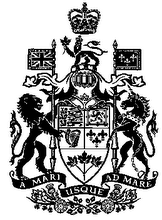


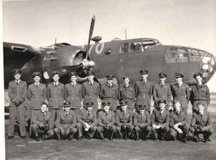

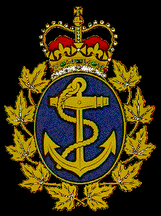




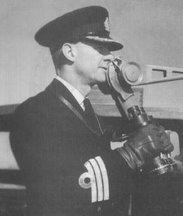
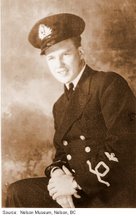


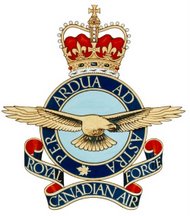
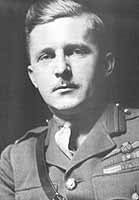
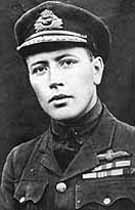
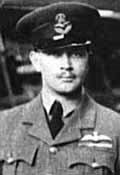











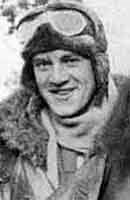
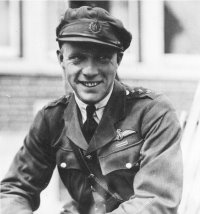


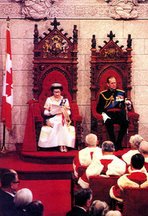
No comments:
Post a Comment